Understanding verbs is essential for learning any language. Verbs describe actions, states, and processes. When combined with clear pictures, they become much easier to learn and remember—especially for children, beginners, and non-native English speakers.
This guide lists 100 useful English verbs, grouped by category, with simple descriptions and imagined visuals to help readers easily understand and remember each word.
🔹 Action Verbs (Physical Movement)
These verbs show physical actions that people or animals can do.
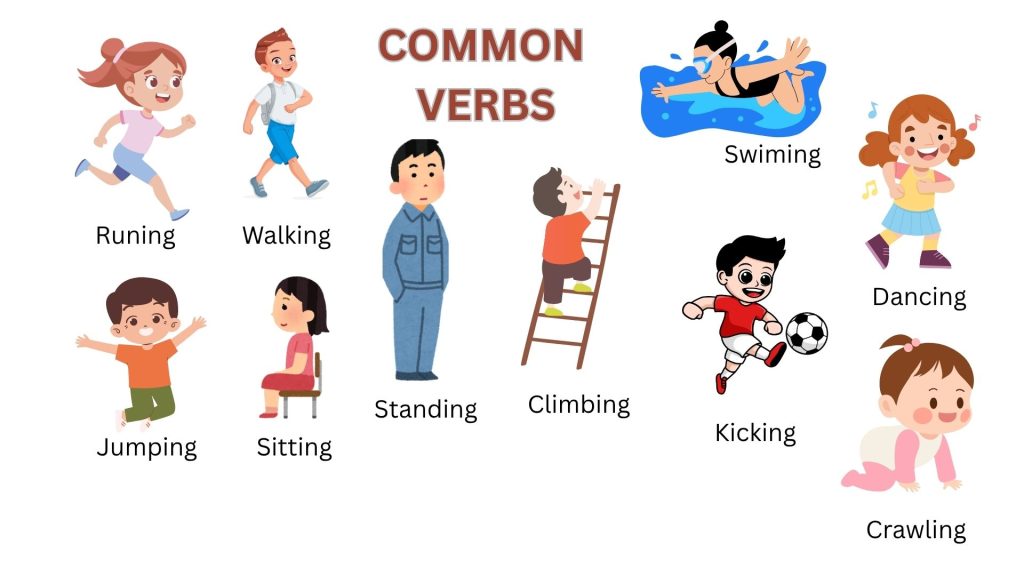
Common Verbs You See Every Day
- Run – A boy is running fast in the park.
- Jump – A child jumps over a puddle.
- Walk – A woman walks her dog on the street.
- Sit – A student sits on a classroom chair.
- Stand – A man stands near the bus stop.
- Swim – A girl swims in a blue pool.
- Climb – A boy climbs a tall tree.
- Crawl – A baby crawls on the floor.
- Dance – A group of friends dance at a party.
- Kick – A boy kicks a football.
🔹 Daily Activity Verbs
These are actions people usually do at home, work, or school.
Verbs Related to Daily Routines

- Eat – A family eats dinner together.
- Drink – A child drinks juice from a glass.
- Sleep – A person sleeps peacefully in bed.
- Wake – A boy wakes up in the morning.
- Cook – A woman cooks food in a pan.
- Wash – A girl washes her hands with soap.
- Brush – A boy brushes his teeth in front of a mirror.
- Read – A student reads a book.
- Write – A teacher writes on the board.
- Clean – A person cleans the table with a cloth.
🔹 Communication Verbs
These verbs describe how we speak, listen, and interact with others.

Talking and Listening Verbs
- Talk – Two friends talk at a café.
- Listen – A girl listens to music on headphones.
- Shout – A man shouts from a distance.
- Whisper – A boy whispers a secret to his friend.
- Ask – A student asks a question in class.
- Answer – A girl answers the phone.
- Sing – A singer performs on stage.
- Laugh – Kids laugh while playing.
- Cry – A baby cries loudly.
- Complain – A customer complains at a counter.
🔹 Mental and Emotional Verbs
These verbs express feelings, thoughts, and decisions.
Thinking and Feeling Verbs

- Think – A man thinks deeply with his hand on his chin.
- Know – A girl knows the answer in class.
- Forget – A student forgets his homework.
- Remember – A woman remembers her birthday.
- Believe – A child believes in magic.
- Love – A couple hugs with love.
- Hate – A man hates waiting in line.
- Need – A person needs help lifting a box.
- Want – A boy wants a toy from a shelf.
- Hope – A girl hopes to win a prize.
🔹 Work and Study Verbs
These are useful in school, offices, and professional settings.
Productive Verbs
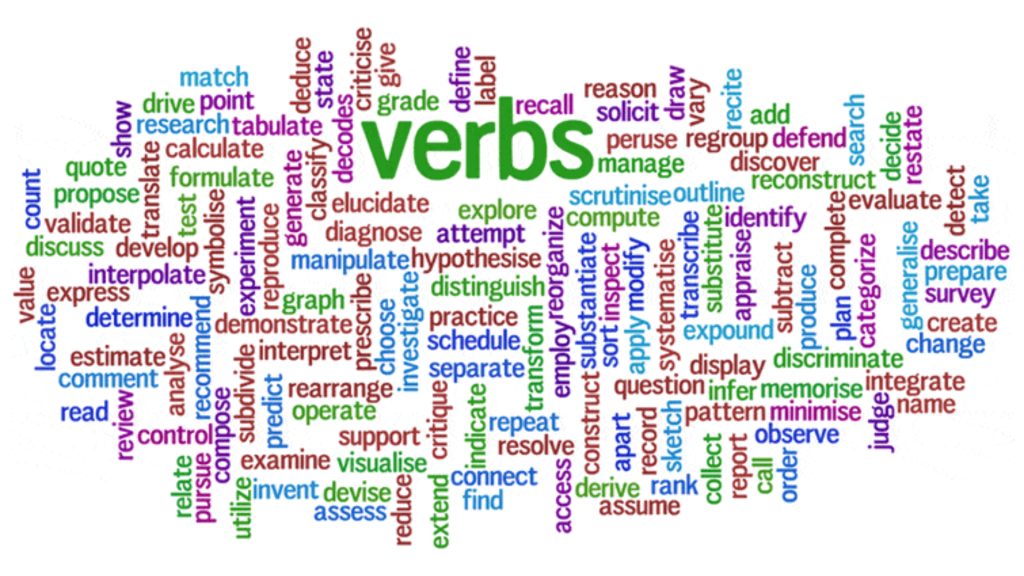
- Study – A student studies at a desk.
- Teach – A teacher teaches in front of a blackboard.
- Learn – A child learns to write letters.
- Work – A man works at a computer.
- Type – A woman types on a laptop.
- Draw – A boy draws with crayons.
- Paint – An artist paints on a canvas.
- Build – Workers build a house.
- Fix – A man fixes a car engine.
- Design – A woman designs clothes on paper.
🔹 Travel and Transportation Verbs
Used when moving from one place to another.
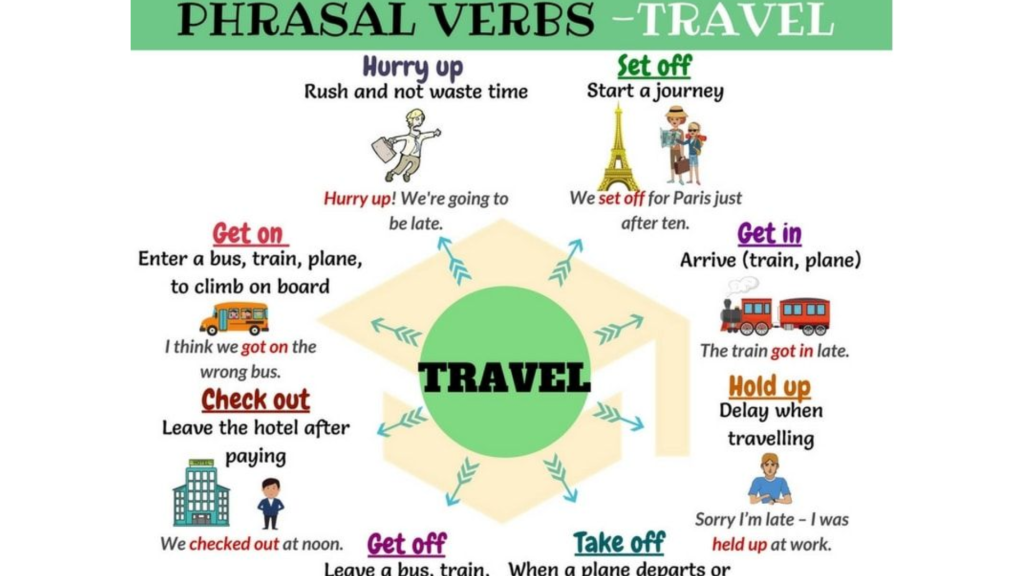
Moving Around
- Drive – A person drives a car on the highway.
- Ride – A boy rides a bicycle.
- Fly – A plane flies in the sky.
- Travel – A tourist travels around Europe.
- Arrive – A train arrives at the station.
- Leave – A girl leaves the house for school.
- Park – A man parks his car in the lot.
- Stop – A bus stops for passengers.
- Turn – A driver turns left at the traffic light.
- Wait – People wait at the airport.
🔹 Shopping and Money Verbs
Perfect for market, online shopping, and money conversations.
Buying and Selling Actions
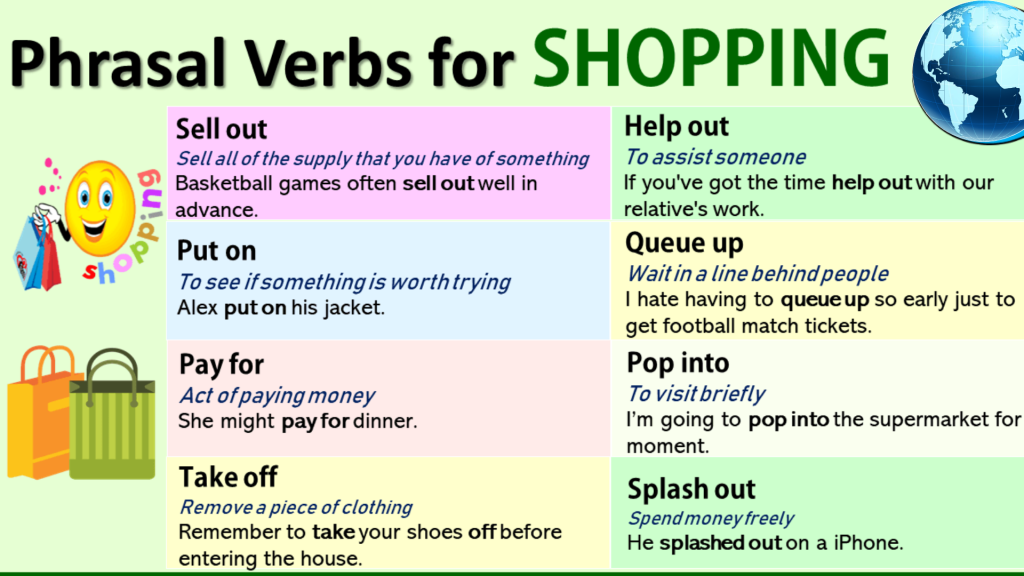
- Buy – A woman buys fruits from the market.
- Sell – A man sells clothes at a stall.
- Pay – A customer pays with cash.
- Spend – A girl spends her pocket money.
- Save – A child saves coins in a piggy bank.
- Earn – A man earns money through his job.
- Order – A person orders food online.
- Choose – A shopper chooses between shirts.
- Return – A customer returns a faulty product.
- Exchange – Two kids exchange toys.
🔹 Nature and Environment Verbs
These describe natural activities or how people interact with the environment.
Outdoors and Nature
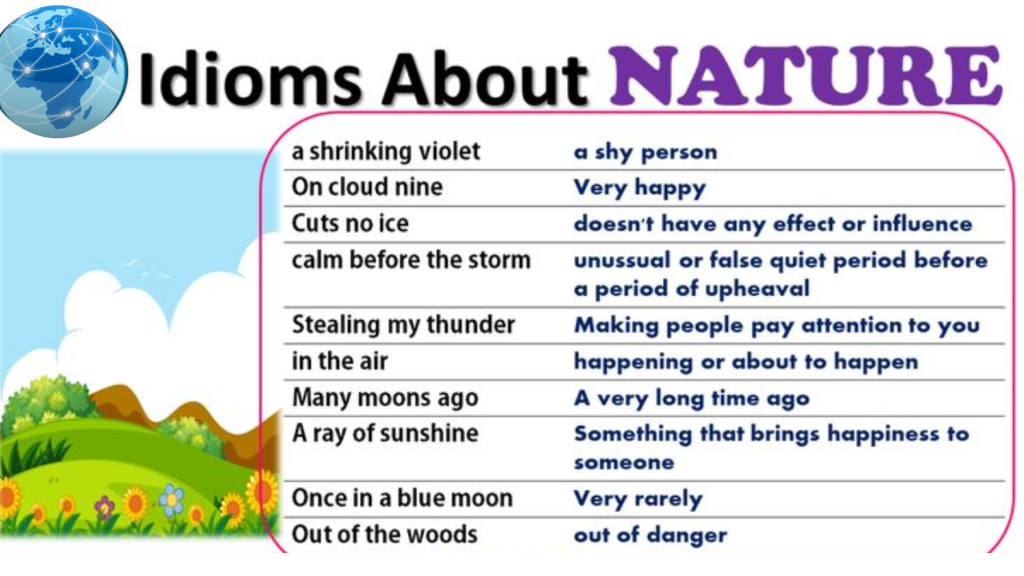
- Grow – A plant grows in the garden.
- Water – A girl waters flowers with a watering can.
- Plant – A man plants a tree.
- Harvest – A farmer harvests crops.
- Cut – A boy cuts grass with scissors.
- Dig – A dog digs in the yard.
- Burn – A fire burns in the fireplace.
- Melt – Ice melts in the sun.
- Freeze – Water freezes in the freezer.
- Blow – The wind blows leaves off the trees.
🔹 Fun and Hobby Verbs
Used when talking about games, leisure, and hobbies.
Playful Actions

- Play – Kids play football in the field.
- Watch – A family watches TV.
- Win – A boy wins a medal.
- Lose – A team loses the match.
- Collect – A girl collects stamps.
- Ride – A child rides a horse.
- Throw – A man throws a ball.
- Catch – A dog catches a frisbee.
- Shoot – A boy shoots a basketball.
- Explore – A traveler explores a forest.
🔹 Helping and Social Verbs
Great for describing care, teamwork, and community.
Acts of Kindness
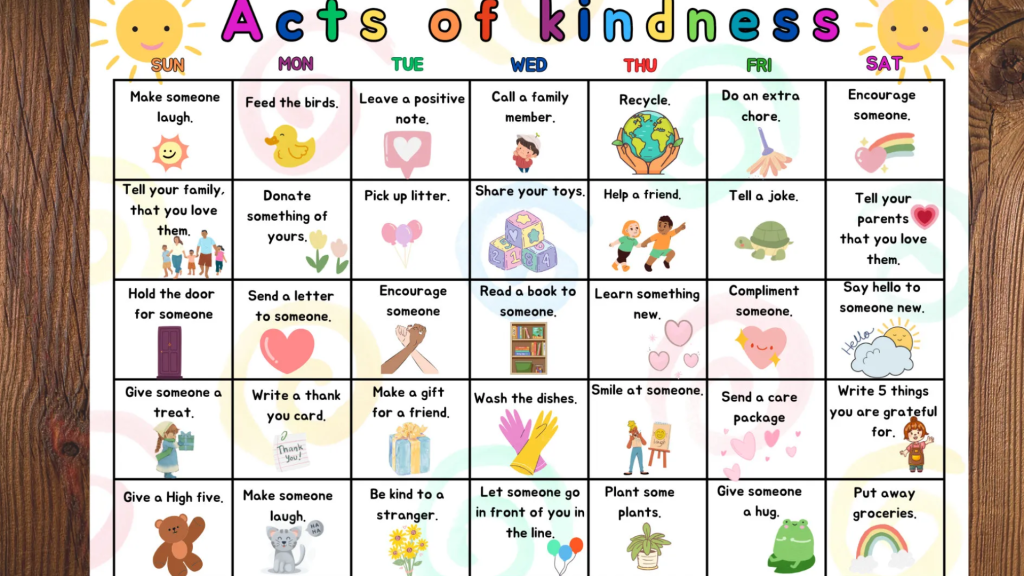
- Help – A boy helps an old man cross the road.
- Give – A girl gives her friend a gift.
- Take – A student takes a pencil from the desk.
- Share – Kids share snacks during lunch.
- Invite – A person invites friends to a party.
- Visit – A woman visits her grandmother.
- Call – A man calls his friend on the phone.
- Text – A girl texts her classmate.
- Join – A boy joins a football team.
- Support – Friends support each other during hard times.
✅ Final Thoughts
This complete list of 100 verbs with pictures (imagined for context) offers a helpful foundation for English learners, parents, teachers, and visual learners. These verbs cover all areas of daily life, and when combined with images, they boost understanding, memory, and confidence in using English.
